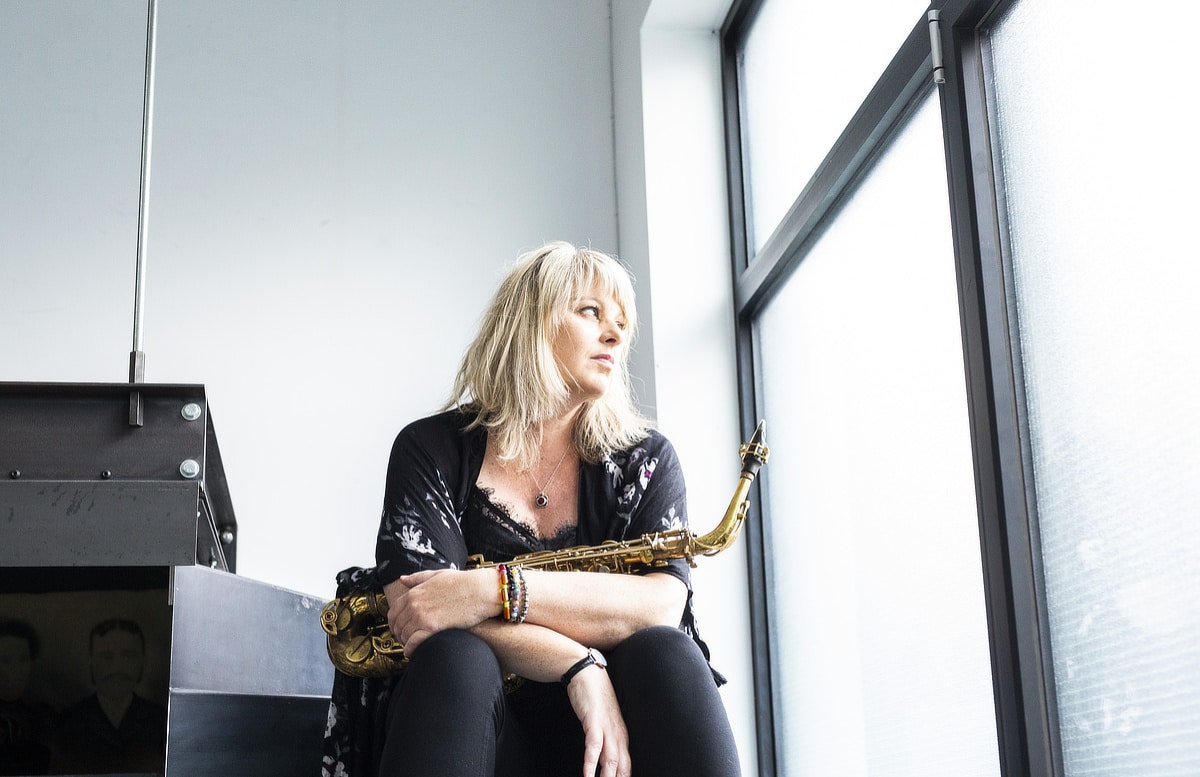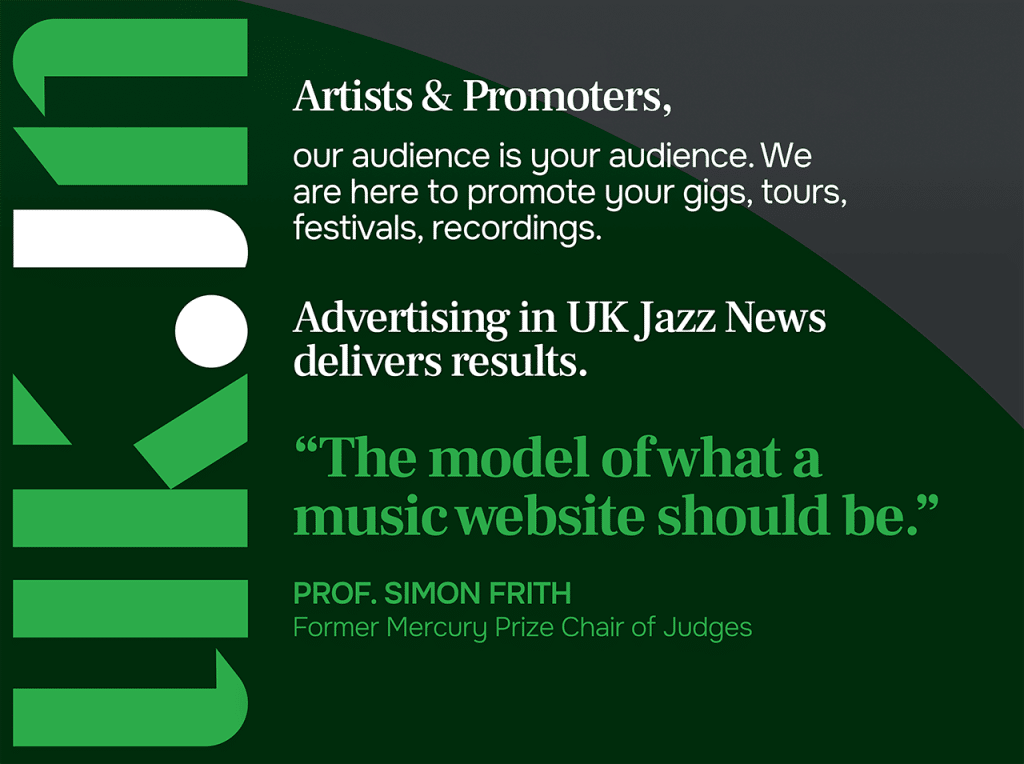The following is an interview between jazz journalist Morgan Enos and saxophonist/composer Christine Jensen. Her third large ensemble release, Harbour, was released 28 June. This interview was conducted in person at the Montreal International Jazz Festival in early July. Links to purchase the release, and to Jensen’s website, can be found at the bottom of this article.
In the press release for Harbour, saxophonist and composer Christine Jensen – sister of trumpeter Ingrid Jensen – describes her album’s title as “shelter on the water, a respite”, which made the now-wrapped Montreal International Jazz Festival perfect for its performance.
In context, saxophonist and composer Jensen was describing life’s junctures since her daughter was born. “This ensemble of family and friends represents that feeling to me,” she wrote, “as we all came out of so much turbulence to land together in a room, where my music could take flight.”
Given that this interview occurred in the midst of the Festival’s hustle and bustle, Jensen was only able to give scant tidbits about the actual details of Harbour. But the album – featuring 19 musicians including her sister Ingrid Jensen on trumpet, Gary Versace on piano, Chet Doxas on tenor saxophone, Jon Wikan on drums, and Steve Raegele on guitar — is refreshing, immersive and worth hearing. Read on for this backstage catch-up from the Canadian fest.
UK Jazz News: What were you trying to impart with Harbour?
Christine Jensen: Well, I hope they know more than how the media, and social media, and streaming platforms are presenting things. Where it’s like, Oh, in an instant, it’s just a miracle – and you’ve made all this music! Jazz on streaming platforms is not working to the artists compared to past platforms.
It’s not that way. It’s a very long process. This album has been the longest journey I’ve taken on: it’s seven pieces over 10 years, that I curated out of my catalogue of work and wanted to finally record.
That also means working with an ensemble that has helped me in that process of playing through the music, editing and refining it, and then going out and doing it in all sorts of different ways.And that includes the acts of organizations commissioning the compositions, where they are born…
UKJN: Is it ever disconcerting, as a musician, to put in all that craft and labour into something you truly care about, and watch it be sluiced into content gruel? As a musician, it bothers me…
CJ: You’re describing how I feel right now. I hope that the listener will be taken on a journey with each song and with the entire album as it goes through an arc in story-telling.
UKJN: So, how do you deal with the attention economy?
CJ: I mean, it’s a hard one to answer, actually, because there are many ways to skin that cat.
Getting an audience has to happen through some sort of visibility. I teach at the Eastman School of Music, and I just told my students, “You are here to learn the craft of this. But if your craft is a tree in the forest, and it falls down, will anyone hear it?”
So, there are some calculating steps, if a young musician wants to take them. I will say: start off young and get going, because it’s all going to fly by fast. I sound like an old person talking, but it’s going to zip by. To start later is much more challenging. When I say start later, I mean start recording and putting it out there.
UKJN: Say more.
CJ: There’s always the next young, pretty thing in music, whether it’s male or female. We all want to capture the emerging, new sounds. Is that where it is? Or is it in the artists who have been working at this craft forever?
Those are the artists that I admire the most: Bill Frisell, Geri Allen, Lee Konitz, Fred Hersch. Brad Mehldau has a great arc to everything. I mean, Kenny Garrett last night — I saw him when I was 19. When he played, it was still the same sound. Still the same youthful energy on that stage.
UKJN: Economical feasibility aside, take the temperature of the large jazz ensemble in 2024.
CJ: Economically unfeasible. Artistically, I think it’s still our greatest social community, and statement of service to the music at its highest level.
UKJN: What’s it been like, observing the evolution of Montreal International Jazz Festival?
CJ: I’ve gone for 25 years, at least. It’s changed. It’s got a new face. I feel it’s looking for the new, young sound. Whereas, I look at it and go, that’s already been done.
I kind of miss a curation of the masters, where they would stay around for three or four days and do different configurations of things. I think it led to more of a family, and community, of the festival.
It’s definitely more outdoor oriented now, which is great. It’s free. More jazz headliners are performing on free stages, so you get to hear a lot of what is going on. The Montreal festival is doing a great job. Everybody needs to hear live music as much as possible. Jazz is an art form that takes a lot of energy to construct. I applaud any musicians trying to put their individual voice out there because it takes courage and vulnerability to create.



3 responses
Deep and meaningful comments by one of our greats out there today. Well done Christine.
Deep abd meaningful comments by one of our best out there today. Well done Christine.
So many textures and nuances in this. I haven’t “really” listened to jazz for a while. But this really re-kindled things for me.